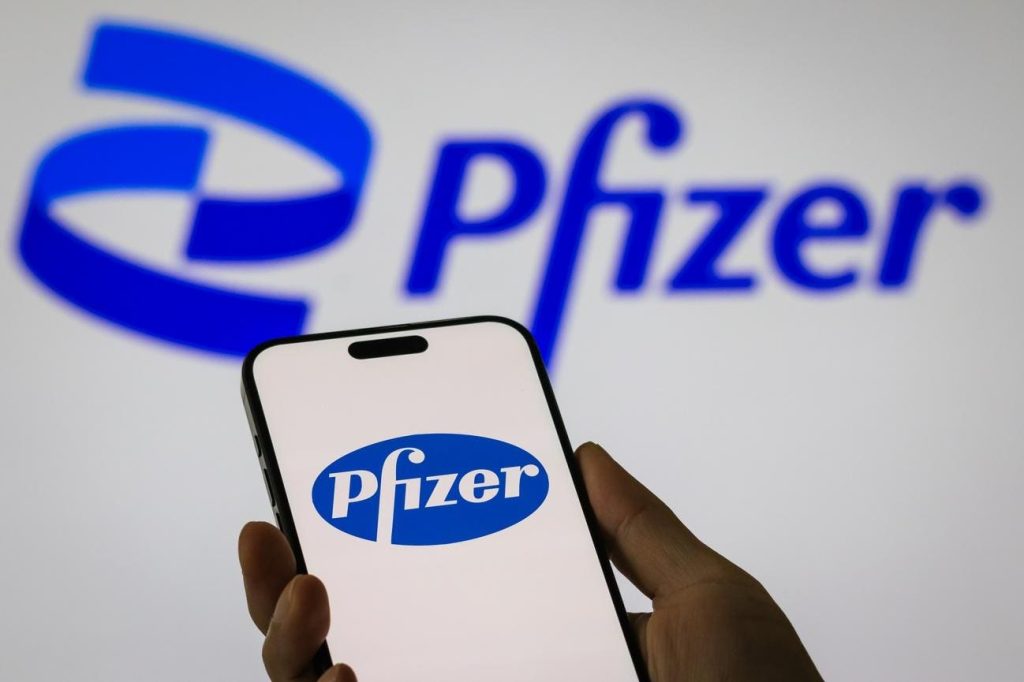Pfizer’s stock performance in 2024 painted a picture of contrast against the backdrop of a bullish market. While the S&P 500 surged by an impressive 23%, Pfizer’s stock experienced a modest decline of approximately 5%. This underperformance, especially when compared to the robust gains of pharmaceutical competitors like Eli Lilly and AbbVie, highlights the unique challenges Pfizer faced during the year. The decline can be attributed to a confluence of factors, most notably the dwindling sales of its COVID-19 vaccine, a squeeze on profitability, and intensified competition in the pharmaceutical landscape. These headwinds, coupled with the broader market’s upward trajectory, positioned Pfizer as a relative laggard in the sector.
A deeper dive into Pfizer’s 2024 performance reveals a complex interplay of positive and negative trends. While the company grappled with declining COVID-19 vaccine revenue, it witnessed promising growth in non-COVID-19 product sales, marking a turnaround from previous quarters. Drugs like Vyndaqel, Abrysvo, and Eliquis emerged as key growth drivers, offsetting some of the revenue losses from the vaccine. The acquisition of Seagen in late 2023 further contributed to top-line growth, adding a new dimension to Pfizer’s portfolio. On the financial front, Pfizer embarked on a cost-cutting initiative aimed at bolstering profitability, targeting $4 billion in savings for the year. The company also managed to reduce its debt burden, though its cash reserves saw a slight dip. The sale of a significant portion of its Haleon stake, however, provided a substantial cash injection, strengthening its financial position.
Despite these strategic moves and positive developments, Pfizer’s stock price remained relatively stagnant throughout 2024, hovering around $27 towards year-end. This subdued performance reflects the market’s cautious sentiment towards the pharmaceutical giant, primarily due to the uncertainty surrounding the future trajectory of its COVID-19 vaccine sales and the potential impact of increased competition. Looking back over a four-year period, Pfizer’s stock performance exhibited significant volatility, with substantial gains in 2021 followed by consecutive declines in 2022, 2023, and 2024. This fluctuating performance underscores the inherent risks associated with individual stock investments and highlights the potential benefits of a diversified portfolio approach.
Looking ahead to 2025, Pfizer faces a mixed bag of opportunities and challenges. While the company is poised for modest growth in sales and earnings, the looming patent expiration of its blockbuster arthritis drug, Xeljanz, poses a significant headwind. The loss of exclusivity for Xeljanz, with its annual sales exceeding $1 billion, could create a revenue void that Pfizer needs to address. However, the continued growth of Vyndaqel, Abrysvo, and Eliquis offers a glimmer of hope, potentially offsetting the impact of Xeljanz’s patent expiry. The performance of the company’s updated COVID-19 vaccine, designed to combat newer variants, will also be a crucial factor influencing its 2025 results. Furthermore, increased competition for drugs like Xtandi and Prevnar adds another layer of complexity to Pfizer’s outlook.
Despite the challenges, there’s a growing belief that Pfizer’s stock is currently undervalued. With a trading price of around $26 per share, the stock’s price-to-sales ratio stands at 2.5x trailing revenues, significantly below its five-year average of 3.1x. This discounted valuation, coupled with the company’s ongoing efforts to enhance profitability, suggests that the potential downsides are already priced into the stock. Investors are keenly watching for signs of improved profitability, which could serve as a catalyst for a stock price recovery. The market’s assessment of Pfizer’s ability to navigate the competitive landscape and successfully launch new products will ultimately determine the stock’s future trajectory.
In conclusion, Pfizer’s journey in 2024 and its prospects for 2025 present a complex narrative. While the company grapples with declining COVID-19 vaccine sales and increased competition, its diversified portfolio, strategic acquisitions, and cost-cutting initiatives offer a pathway to sustained growth. The market’s perception of Pfizer’s ability to overcome these challenges and capitalize on emerging opportunities will ultimately dictate the future performance of its stock. The current undervaluation presents a potential opportunity for investors, but the inherent risks associated with the pharmaceutical industry and the specific challenges facing Pfizer warrant careful consideration.

